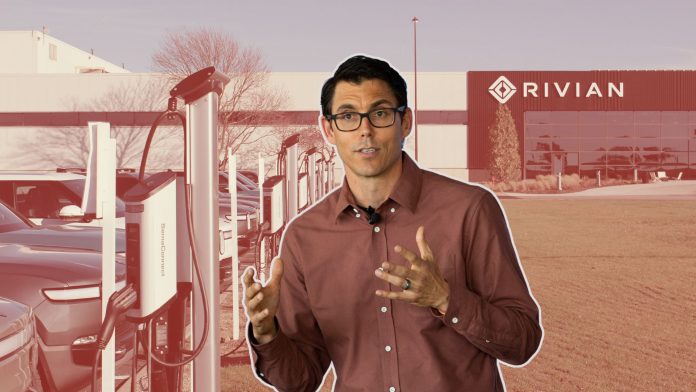Rivian slashed its full-year production forecast on Friday and missed its third-quarter delivery expectations, citing a parts shortage and weakening demand for electric vehicles (EVs). This announcement sent shares of the Amazon-backed EV startup down nearly 9%, raising concerns about the company’s growth and profitability.
The parts shortage began in the third quarter and has worsened recently, impacting production of Rivian’s R1 SUVs, R1T pickups, and delivery vans. Although Rivian did not disclose the specific part or supplier involved, the shortage contributed to the company’s decision to lower its production forecast for 2024. Rivian now expects to produce between 47,000 and 49,000 vehicles, down from the previous projection of 57,000. This marks a significant setback, as the company anticipates producing fewer vehicles than last year.
The production drop comes as the EV industry grapples with slowing demand. High interest rates have driven American consumers to opt for more affordable hybrid vehicles over fully electric models, affecting even industry leaders like Tesla, which also missed its delivery targets earlier this week. Rivian’s uneven manufacturing rates and recent factory adjustments to reduce costs have only added to the company’s challenges.
Garrett Nelson, a senior equity analyst at CFRA Research, expressed concerns about Rivian’s ability to achieve profitability after the company significantly lowered its production guidance. Rivian, which has yet to turn a profit, aims to achieve its first positive earnings in the last quarter of the year. To support this goal, the company temporarily shut down its manufacturing facility in Normal, Illinois, earlier this year to streamline production processes and reduce vehicle build costs.
Rivian’s success in lowering production costs is critical as it seeks to navigate the current slowdown in EV demand. The company plans to ramp up production of its R1 models while preparing to launch its smaller R2 models in 2026. However, Rivian’s quarterly deliveries also fell short of expectations, with 10,018 vehicles delivered in the third quarter, below the 12,078 estimated by analysts.
Despite revising its production targets, the automaker reaffirmed its annual deliveries forecast of 50,500 to 52,000 vehicles, which falls short of analysts’ expectations of 53,491. The slowdown in EV demand and cautious consumer spending continue to impact Rivian’s operations, with the company grappling to maintain momentum in an increasingly competitive market.
In a potential boost, German automaker Volkswagen announced earlier this year plans to invest up to $5 billion in Rivian as part of a joint venture, which could help the EV maker bolster its cash reserves and potentially achieve positive cash flow. However, the road to profitability remains challenging as Rivian faces ongoing industry headwinds.




